Dune Review: Perfectly Adequate World Building
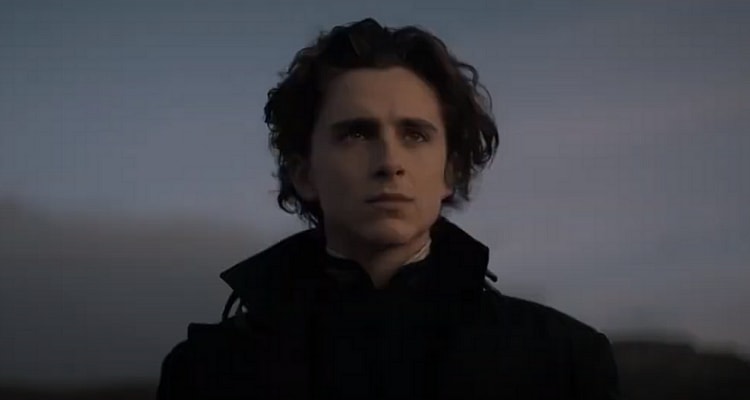
Thanks to the sheer density of Frank Herbert’s material, Dune has been notoriously hard to adapt for the silver screen.
The first attempt by Alejandro Jodorowsky never got made, while the 1984 adaptation helmed by David Lynch and produced by Dino De Laurentiis didn’t turn into a franchise like everyone hoped it would – though it is a masterpiece in its own right.
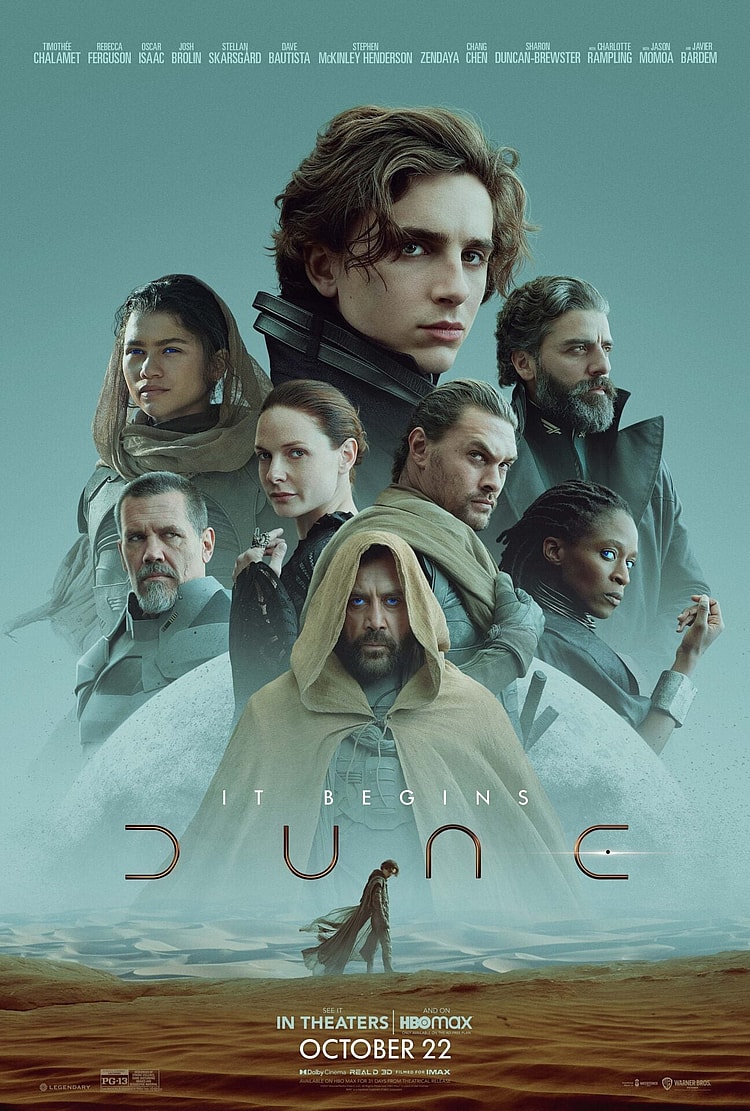
Related: Director Denis Villeneuve Shuts Down Rumors Of A Director’s Cut For Dune
Now, in 2021, Denis Villeneuve gets to take his crack at it, and after a pandemic-sized delay, we can finally feast our eyes on his presentation.
More importantly, we finally get to judge how he did, and yeah, it’s pretty good – and fans ought to be impressed with how it turned out – even if Villeneuve doesn’t push the limits of what we know he is capable of.

Plot
In a familiar premise that feels like it’s been hammered into fans rather thoroughly, Dune opens to find control of the planet with all the spice and everything nice, Arrakis, passing from the clutches of the dreadful Harkonnens to House Atreides.
Naturally, this exchange turns out to be a trap, as it turns out the Baron (Stellan Skarsgard) is actually out to try and wipe away the competition by killing his sworn enemy. Not all goes according to plan, as next in line to Duke Leto (Oscar Isaac), his son Paul (Timothee Chalamet), lives – an oversight which turns out to have massive ramifications for the Baron’s plans.
Underneath it all is the prophecy of the Kwisatz Haderach – otherwise known as the young Paul, who finds himself having dreams of Arrakis, its people the Fremen, his fallen comrades, and a mysterious young lady with striking blue eyes that barely says a word (Zendaya).

How It’s Dune
That’s the long and short of it, and though it doesn’t sound like a lot, Villeneuve takes his time to reach a resolution in what amounts to the huge first act on an extended story – and he pulls it off with a definite win in the coherence of the piece while still keeping it stunning and surreal.
Some have said Dune ends too abruptly, but I thought they left off at a desirable spot from which to pick up in the film’s second part, which was officially announced on October 26th. An unsurprising move from Warner Bros., as after all, you can’t go this far without seeing the story through to the end..

Related: Dune: Legendary Entertainment Gives Sequel The Greenlight
Grains of Action
Another common complaint among audiences who have seen the film is that it features more plot exposition and setup than it does action scenes.
However, I didn’t find this to be true at all , as there are plenty of harrowing set pieces and battles to go around that Marvel and Star Wars fans should enjoy. Chief among them are Duke Leto and Paul leading a rescue mission which becomes gravely complicated by an approaching sandworm and the battle for Arrakis, when the Baron unleashes the full force of his plan and closes the trap.
If those don’t grab you, then the one-on-one swordplay and hand-to-hand fighting just might. This aspect is the territory of Jason Momoa and Josh Brolin when they show up periodically to play their own respective best-of compilations. At this point, it’s hard not to see them as Aquaman and Thanos, which may be why their performances leave an impact despite short screen time.
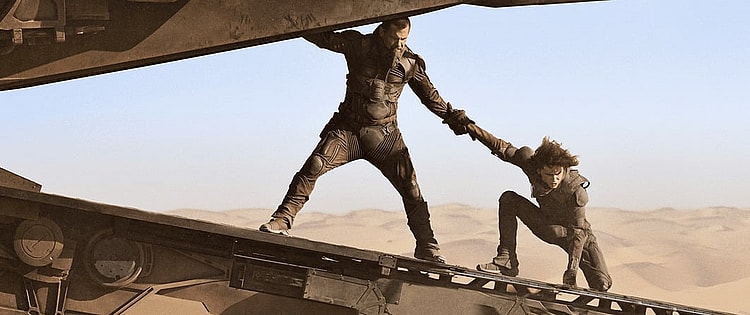
Related: Dune Stars Jason Momoa And Josh Brolin Show Support For Denis Villeneuve And Theaters
Like Mirages
For all this film’s star power, most of the players are barely in it – Momoa and Brolin especially – and others still are barely recognizable. For example, both Dave Bautista and David Dasmalchian walk around under heavy makeup in order to accurately portray the “brutal” albino Harkonnens.

On the other hand, there is no mistaking Stellan Skarsgard, even under all his ponderous prosthetics. As the intimidating Baron, he delivers what is quite possibly the best villain performance of the year. In fact, it should go down as the best portrayal of Harkonnen, bar none.
Meanwhile, Oscar Isaac as the Duke and Rebecca Ferguson as the concubine Lady Jessica are Dune’s real scene-stealers , with Ferguson appearing through out a lion’s share of the movie – even if it is mostly in service to Dune’s real star.
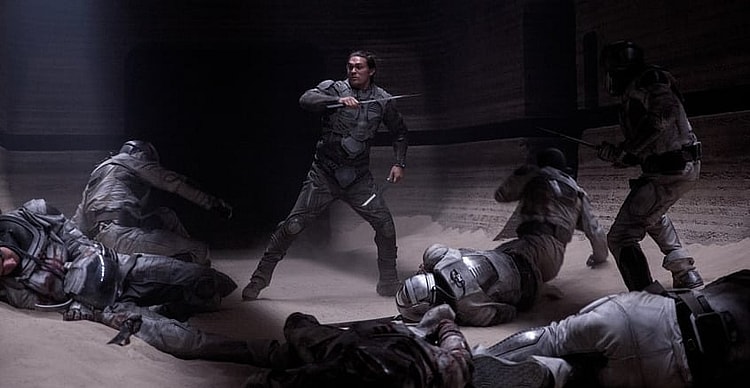
Related: Box Office: Dune Takes Top Spot With $41 Million
More Neo Than Keanu
Then there’s the film’s star, Timothée Chalamet, who is perfectly cast as Paul Atreides. And while he might not be the runaway performer of the film, that’s only because of the stiff competition mentioned above.
He really evokes that “he doesn’t look like much” image in stature but exudes greater confidence than Kyle MacLachlan, whose take on Paul in Lynch’s film was more boyishly naive, despite the fact that he looked nothing like a teenager.

Chalamet has a bullish bravado in his performance and reacts more how you’d expect someone to in these situations than he does a steadfast action protagonist. Where Lynch usually presents his characters as bizarre and passive as they rush into a big twist, under Villeneuve’s direction, Paul seldom avoids danger and instead calmly accepts his destiny when the climax hits – even as he has to kill to prove his worthiness to the Fremen.
As a protagonist, Chalamet shows he’s studied more at the Keanu Reeves-Matrix school of being a hero and consulted less the Disney Star Wars manual for losing fans and alienating people.
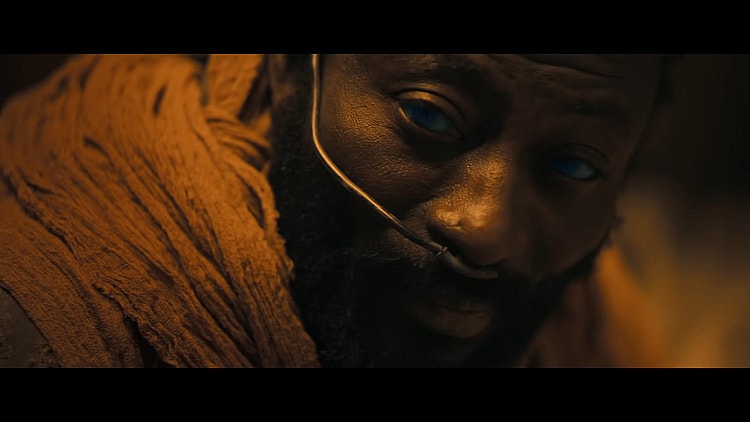
Our Verdict in the Sands
On top of being well-acted and well-paced, Dune is a grand visual banquet whose biggest achievement is that it’s more straightforward in its plot than you’d expect. Villeneuve may have translated the material to make it more palatable to mass audiences, but stylistically, he doesn’t do anything out of the ordinary – especially in comparison to his work on Arrival and Blade Runner 2049.
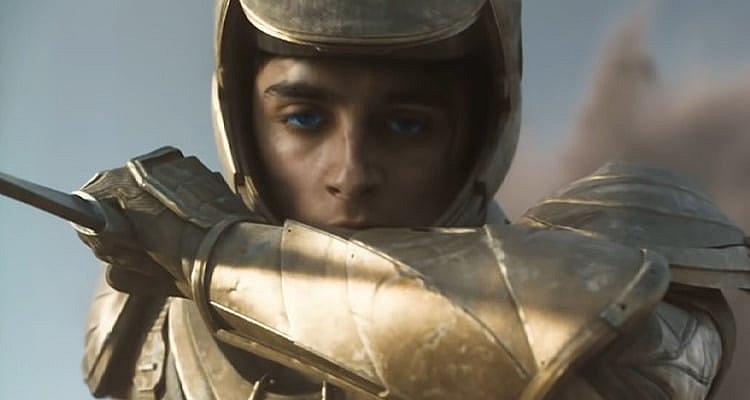
Related: Denis Villeneuve Explains Why Dune Is Still So Relevant By Referencing Colonialism And More
Fortunately, what I can report is that the film is a return to the kind of thoughtful, epic sci-fi fantasy that doesn’t talk down to you and focuses instead on just telling an interesting story – like Star Wars and Star Trek used to. The geopolitical themes of imperialism and class warfare are there, but thankfully aren’t so blatant they cost the affair watchability points or smack viewers across the face.
I’m still waiting on Jodorowsky’s reaction to the film, which should be interesting. Maybe afterward, Legendary and Villeneuve will take a look at his graphic novels, like The Metabarons – which was inspired by the original Dune storyboards drawn by Moebius – for further material to adapt.
Although, admittedly, that’s some challenging material to work with.

